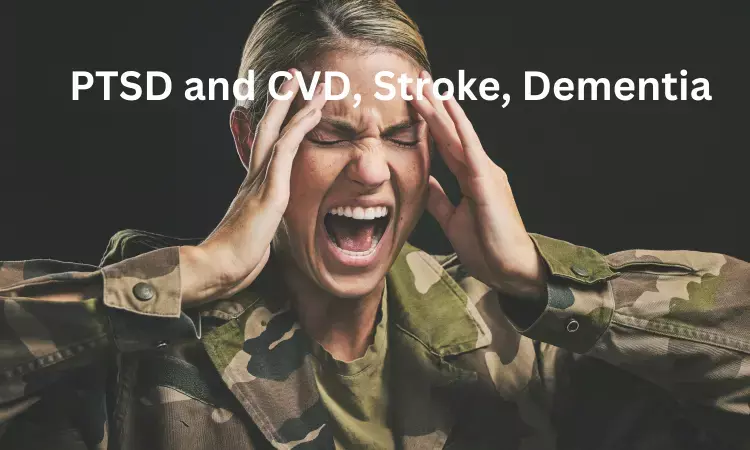- Home
- Medical news & Guidelines
- Anesthesiology
- Cardiology and CTVS
- Critical Care
- Dentistry
- Dermatology
- Diabetes and Endocrinology
- ENT
- Gastroenterology
- Medicine
- Nephrology
- Neurology
- Obstretics-Gynaecology
- Oncology
- Ophthalmology
- Orthopaedics
- Pediatrics-Neonatology
- Psychiatry
- Pulmonology
- Radiology
- Surgery
- Urology
- Laboratory Medicine
- Diet
- Nursing
- Paramedical
- Physiotherapy
- Health news
- Fact Check
- Bone Health Fact Check
- Brain Health Fact Check
- Cancer Related Fact Check
- Child Care Fact Check
- Dental and oral health fact check
- Diabetes and metabolic health fact check
- Diet and Nutrition Fact Check
- Eye and ENT Care Fact Check
- Fitness fact check
- Gut health fact check
- Heart health fact check
- Kidney health fact check
- Medical education fact check
- Men's health fact check
- Respiratory fact check
- Skin and hair care fact check
- Vaccine and Immunization fact check
- Women's health fact check
- AYUSH
- State News
- Andaman and Nicobar Islands
- Andhra Pradesh
- Arunachal Pradesh
- Assam
- Bihar
- Chandigarh
- Chattisgarh
- Dadra and Nagar Haveli
- Daman and Diu
- Delhi
- Goa
- Gujarat
- Haryana
- Himachal Pradesh
- Jammu & Kashmir
- Jharkhand
- Karnataka
- Kerala
- Ladakh
- Lakshadweep
- Madhya Pradesh
- Maharashtra
- Manipur
- Meghalaya
- Mizoram
- Nagaland
- Odisha
- Puducherry
- Punjab
- Rajasthan
- Sikkim
- Tamil Nadu
- Telangana
- Tripura
- Uttar Pradesh
- Uttrakhand
- West Bengal
- Medical Education
- Industry
Women with PTSD at greater risk for CVD, Stroke and dementia: JAMA

Post Traumatic Stress Disorder (PTSD) is a rising concern described as mental health condition that can occur after a person experiences or witnesses a traumatic event or series of events. Reports suggest Women have double the risk of PTSD relative to men. PTSD is associated with a 50% to 60% increased risk of incident Cardiovascular disease (CVD) and elevated stroke and dementia risk.
Are posttraumatic stress disorder (PTSD) symptoms associated with poorer cardiovascular and neurocognitive health among midlife women, and do these associations vary by APOEε4 status, is an unanswered question. A new study JAMA Network aimed to evaluate the same.
Dr Rebecca C. Thurston, and team found that women with higher PTSD symptoms had significantly greater carotid atherosclerosis. Among women who were carriers of the APOEε4 genotype, those with higher PTSD symptoms had greater brain white matter hyperintensities, an indicator of brain small vessel disease, as well as poorer cognition.
Researchers conducted cross-sectional study, participants were enrolled between 2016 to 2021 and completed questionnaires (PTSD Checklist–Civilian Version), physical measures, phlebotomy, neuropsychological testing, a carotid ultrasonographic examination, and 3-Tesla brain magnetic resonance imaging. Participants included community-based women ages 45 to 67 years without a history of CVD, stroke, or dementia. Data were analyzed from July 2022 to September 2023. Outcomes of interest were associations of PTSD symptoms with carotid IMT, brain WMHV, and cognition, assessed in linear regression models. Interactions by APOEε4 were tested. Covariates included age, race and ethnicity, education, and CVD risk factors.
The key findings of the study are
• A total of 274 participants (mean [SD] age, 59.03 [4.34] years; 6 Asian participants [2.2%]; 48 Black participants [17.5%]; 215 White participants [78.5%]; 5 multiracial participants [1.8%]), 64 participants (24.71%) were APOEε4 genotype carriers.
• Higher PTSD symptoms were associated with greater carotid IMT (multivariable β = 0.07 [95% CI, 0.01 to 0.13]; P = .03).
• Associations of PTSD symptoms with neurocognitive outcomes significantly varied by APOEε4 status.
• Among women with APOEε4, PTSD symptoms were associated with greater whole-brain WMHV (β = 0.96 [95% CI, 0.30 to 1.63]; P = .009), periventricular WMHV (β = 0.90 [95% CI, 0.24 to 1.56]; P = .02), deep WMHV (β = 1.21 [95% CI, 0.23 to 2.20]; P = .01), and frontal WMHV (β = 1.25 [95% CI, 0.05 to 2.45]; P = .04).
• As well with poorer cognition, specifically attention and working memory (β = −3.37 [95% CI, −6.12 to −0.62]; P = .02), semantic fluency (β = −6.01 [95% CI, −10.70 to −1.31]; P = .01), perceptual speed (β = −12.73 [95% CI, −20.71 to −4.75]; P = .002), and processing speed (β = −11.05 [95% CI, −17.80 to −4.30]; P = .002) in multivariable models.
Thurston and team concluded that “In this cross-sectional study of midlife women, greater PTSD symptoms were associated with higher carotid atherosclerosis and, among women who were APOEε4 carriers, greater brain small vessel disease and poorer cognitive performance. These findings point to the adverse implications of PTSD symptoms for cardiovascular and neurocognitive health among women in midlife, particularly for women who are APOEε4 carriers.”
Reference: Thurston RC, Jakubowski K, Chang Y, et al. Posttraumatic Stress Disorder Symptoms and Cardiovascular and Brain Health in Women. JAMA Netw Open. 2023;6(11):e2341388. doi:10.1001/jamanetworkopen.2023.41388
MSc. Neuroscience
Niveditha Subramani a MSc. Neuroscience (Faculty of Medicine) graduate from University of Madras, Chennai. Ambitious in Neuro research having worked in motor diseases and neuron apoptosis is interested in more of new upcoming research and their advancement in field of medicine. She has an engrossed skill towards writing and her roles at Medical dialogue include Sr. Content writer. Her news covers new discoveries and updates in field of medicine. She can be reached at editorial@medicaldialogues.in
Dr Kamal Kant Kohli-MBBS, DTCD- a chest specialist with more than 30 years of practice and a flair for writing clinical articles, Dr Kamal Kant Kohli joined Medical Dialogues as a Chief Editor of Medical News. Besides writing articles, as an editor, he proofreads and verifies all the medical content published on Medical Dialogues including those coming from journals, studies,medical conferences,guidelines etc. Email: drkohli@medicaldialogues.in. Contact no. 011-43720751


